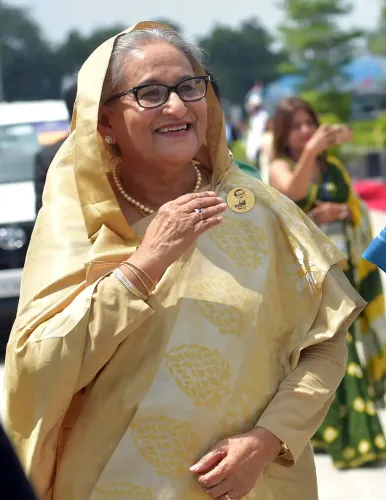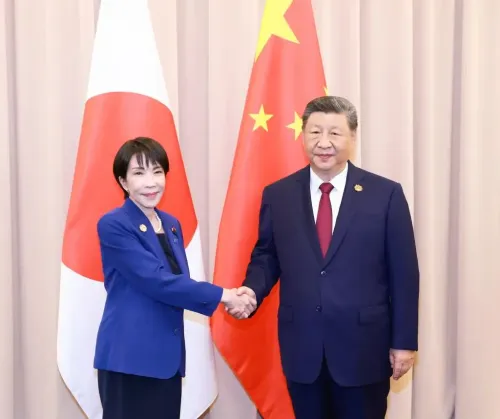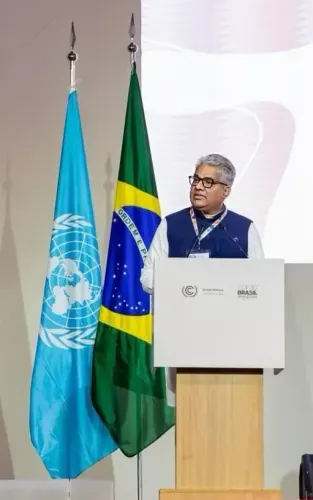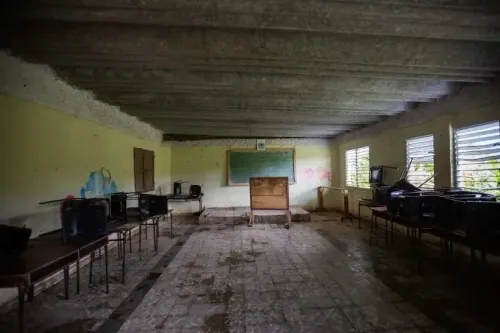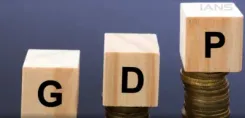Can Lee's Vision for AI and Renewable Energy Cooperation with the UAE Become Reality?
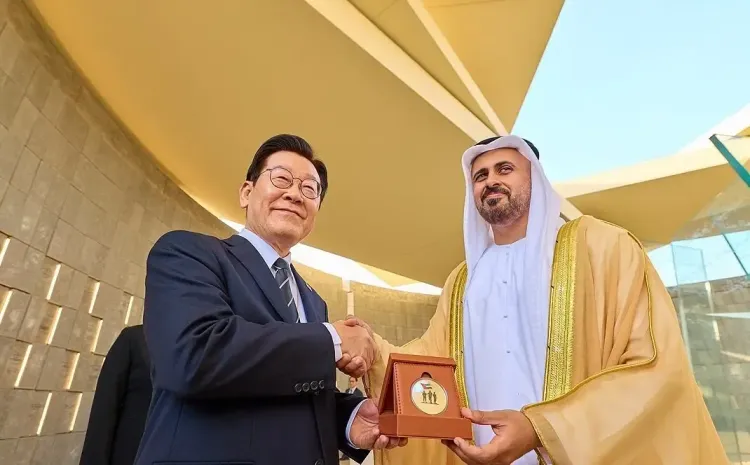
Synopsis
Key Takeaways
- South Korea aims to expand cooperation with the UAE in AI and renewable energy.
- Korean chip manufacturers are key players in the global supply chain.
- Innovative startups may diversify the UAE's supply base.
- The Barakah Nuclear Energy Plant symbolizes successful energy collaboration.
- Cultural exchanges are set to increase with new initiatives.
Abu Dhabi, Nov 18 (NationPress) President Lee Jae Myung stated on Tuesday that South Korea is focused on enhancing collaboration with the United Arab Emirates (UAE) in key sectors, including artificial intelligence (AI), renewable energy, and advanced technologies, aiming to establish itself as one of the UAE's primary economic allies.
During his visit to Abu Dhabi, Lee expressed in a written interview with UAE's Aletihad newspaper that he hopes this diplomatic trip will serve as a stepping stone towards a "new centennial phase" in their relationship, broadening cooperation beyond conventional domains such as trade, defense, nuclear energy, and into future-oriented sectors, as reported by Yonhap news agency.
Lee underscored the pivotal role of Korean chip manufacturers in the global supply chain and their collaborations with international entities, including the American tech giant OpenAI, expressing enthusiasm for enhanced cooperation with the UAE to bolster its AI ecosystem.
"As a top global supplier of memory chips, Korea stands as a strategic ally capable of providing the advanced AI-memory chips that the UAE requires," Lee articulated in the English-language interview. "Korean enterprises are projected to significantly contribute to the development of the UAE's AI semiconductor ecosystem."
He noted that innovative Korean startups could play a crucial role in diversifying the UAE's supply chain, highlighting that the global AI semiconductor market is currently monopolized by a select few companies.
"Innovative Korean startups, such as Rebellions and FuriosaAI, possess immense potential to act as alternative suppliers," he remarked. "We anticipate creating synergies as these capabilities resonate with the UAE's future strategy."
On the topic of energy collaboration, Lee urged for leveraging the momentum from the Barakah Nuclear Energy Plant, the UAE's inaugural nuclear facility constructed by the state-owned Korea Electric Power Corp. The plant is fully operational 12 years post-construction and now supplies a quarter of the UAE's electricity.
"Building on the triumph of Barakah's construction and operation, our two nations will embark on a new chapter in energy collaboration," he stated.
He suggested broadening energy cooperation into renewable energy and the advancement of small modular reactors, including joint initiatives in third countries, to accommodate rising power demands driven by AI and advanced industries.
Lee emphasized the potential for synergy by merging the UAE's abundant solar resources with Korea's leading-edge battery and energy-storage technologies,
"Collaboration in renewable energy transitions and energy-storage systems will significantly strengthen our leadership in emerging, eco-friendly industries," he asserted.
In cultural matters, Lee indicated that his administration would evaluate easing entry processes for UAE nationals visiting South Korea and plans to inaugurate a new Korean Cultural Center in the UAE by 2030, aiming to transform it into a central hub for cultural exchange between the two nations.

